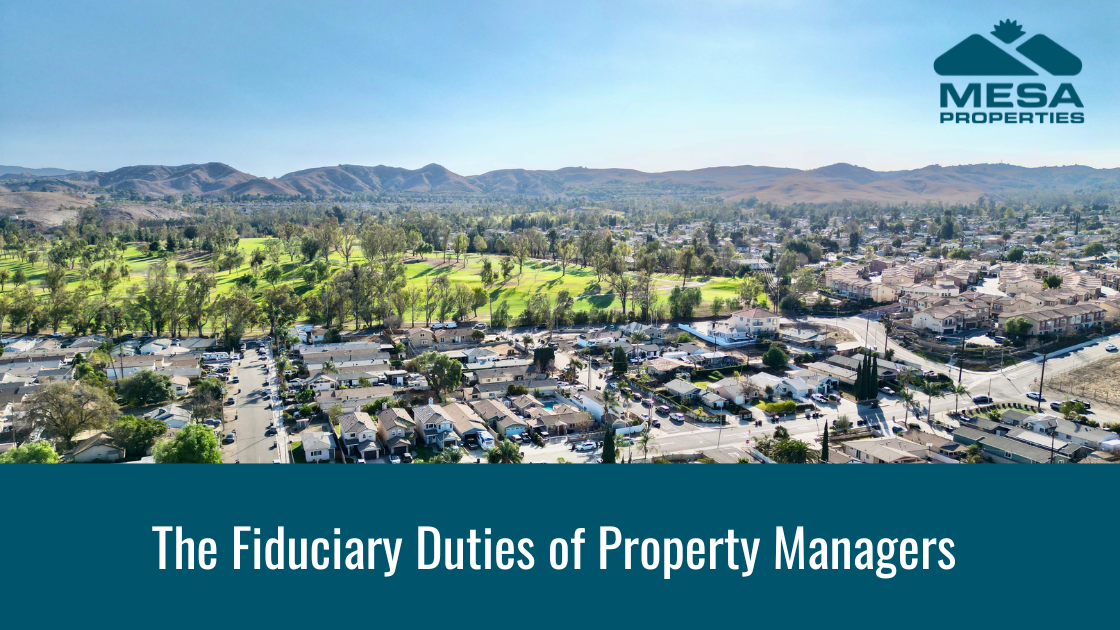There’s a common saying that property management companies use when pitching their services to potential owners. “We will manage your property as if it were our own.”
If you’re like most landlords, you probably roll your eyes at such a claim and begin searching for the proof. After all, no property manager can truly value and look after your property with the same level of care and attention to detail as you do, can they? How can they substantiate this bold claim?
In fact, many service based businesses will use similar guarantees when talking about their services. “We work on your car as if it were our own.” “We will clean your house as if it’s our own.”
The problem with statements like these is that they’re almost impossible to justify. Those are subjective claims and taking care of something like it’s “your own” infers that you have the same standard as the person for whom you are doing the work. If you trash your car or your house and then guarantee that you will treat the customer’s house or car the same, the statement is worthless.
So when a property manager claims that they will take care of your home as if it were their own, is it a meaningless guarantee?
In the real estate industry, they actually can make this guarantee and stand by it, all because of one specific term: “fiduciary.”
What It Means To Be A Fiduciary Agent
According to the Law Offices of Stimmel, Stimmel & Smith, a fiduciary duty is the highest duty one person can owe another and imposes the highest degree of loyalty and obligation to the person enjoying the benefit of the duty. This is the duty that a parent owes to their child. Just as a child trusts the parent to do everything in their best interest, so should a homeowner be able to trust their property manager.
When you enter into a real estate contract, whether selling or leasing your house, you are establishing what is known as a fiduciary agency with your property manager/real estate agent. The term “fiduciary” implies that the agent is both ethically and contractually obligated to act in your best interest.
When investors select financial managers as agents to manage their assets, they establish a fiduciary relationship. The same goes for selecting a property manager to manage your home. One way to gauge whether or not a property manager is good at their job is whether or not they take their fiduciary responsibilities to their clients seriously.
In California, property management companies are real estate brokerages, meaning they are regulated by the California Department of Real Estate to act as a fiduciary agent on behalf of the principal (you) when they do anything in regards to your home.
Failure to perform fiduciary responsibilities can result in loss or suspension of license by the California DRE. In fact, in most real estate transactions, you will sign a “Disclosure Regarding Real Estate Agency Relationship.” These disclosures are required by the DRE as a protection for you as the seller, buyer or landlord with an agent and they detail the duties of the fiduciary agent.
It All Boils Down To Trust
Obviously you aren’t naturally going to believe that someone you just met is truly going to act in your best interest at all times. There has to be trust.
Establishing trust is the job of the property manager. Telling you they will act in your best interest is all well and good, but if you don’t trust that they will, it’s meaningless. It may be true that you have a contract with them that mandates that they must act in your best interest, but this won’t put most landlord’s minds at ease.
Ask your property manager for testimonials from current or prior clients. Read their online reviews and see what other landlords have to say about how they handled their rental home. You also need to make sure expectations are set clearly from the beginning with the property manager. Communication is key so make sure there is an established method and frequency of communication.
Trust is only built over time and as issues arise and your property manager handles them either with or without your involvement, you will begin to gauge just how well they are fulfilling their fiduciary responsibilities. Because of the time element of trust, be wary of any company that wants to lock you into a long term contract or won’t offer any service guarantees. If trust isn’t established, you may end up stuck with a bad property manager who isn’t fulfilling their duty to you.
The Long Term Benefits Of Trust
As time goes on and your property manager establishes trust with you, the burden of responsibility of being a landlord will melt away.
No longer will you have to worry about whether or not you are renting out your property in accordance with all laws or if that plumber you had to send out to replace the water heater is doing a good quality job without ripping you off. With a property manager acting honestly as your fiduciary, things like this will be handled not how you would handle them, but in your best interest. This often means they will be handled better than you would handle them.
Imagine if you received your monthly rent from your property management company and it was half of what the normal amount was. It’s the middle of the Summer and temperatures have been over 100 degrees for weeks. You check your statement and see that over $1,000 was spent to repair the AC unit.
Many landlords would receive something like this and immediately pick up the phone and call their property manager, demanding why this amount of money was spent without their approval.
If there is established trust between yourself and your property manager and you believe that they are truly carrying out their fiduciary responsibilities to you, you won’t pick up that phone and call. You will know that if they authorized that repair, it must have been absolutely necessary. Why? because they wouldn’t have done anything without it being in your best interest.
By not involving you, they were able to save you from the stress of having to worry about getting a vendor out during a time when every AC vendor in the area was completely booked up. You didn’t have to pay a premium during this peak season because your property manager has their established vendor that does excellent work and doesn’t up their charge during peak season.
They were also able to get the job done faster without your involvement and keep the tenant happy. Happy tenants take better care of the property and are more likely to stay longer, decreasing your vacancy time and putting more money in your pocket at the end of the year. There are multiple reasons why taking care of this quickly and efficiently was in your best interest and it all had to happen with or without your involvement.
Summing It Up
At Mesa Properties, we take our fiduciary responsibility seriously. A typical property manager manages between 100-150 homes at any given time. That can be up to $60 million in assets managed. Real estate investments are often the most valuable and expensive assets that you can own, and you can rest assured that if we are managing your property, we are doing so with your best interests in mind at all times.
Just like your lawyer, accountant and portfolio manager, we are constantly working to act in your best interest and ensure your property maintains its value throughout the time that you own and rent it out.



